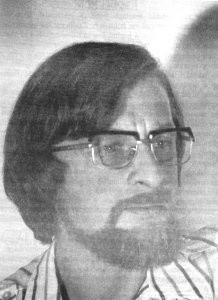Hi everyone!
This weekend, I finished reading Horus Rising: The Seeds of Heresy Are Sown by Dan Abnett. It is the first book of the Horus Heresy novel series, which can be described as techno-fantasy or fantasy action genre. All these books belong to the Warhammer Universe, and they are fanfiction based on this game.
Dan Abnett is a British novel writer and comic creator. He currently works as a scenarist for Marvel and is known for Sinister Dexter, Black Light, Badlands, Atavar, Downlode Tales, Sancho Panzer, Roadkill, Death’s Head, and Wardog comics. He has published numerous novels dedicated to the Warhammer Universe, and some of which have found wide recognition among the reading audience.
Horus Rising: The Seeds of Heresy Are Sown presents the chain of events for the next parts and explains the main points of how the Imperium of Man looks, making us acquainted with the main ideology of it, its morals and belief systems, aims, and “mission” – all of these through the eyes of Captain Loken. We also get to know about the society structure, iterators (ideologist-philosophers), remembrancers (artists), and Astartes (genetically bred warrior-race) – which confirms the idea that poetry and love bloom the most where the fiercest wars take place.
We learn about materialism (on the surface) and the militarism as the main underlying currents of the Imperium. We take a look at the other species and civilizations, often presented by scenes in which Loken shares his memories about certain wars with Mersadie Oliton, a remembrancer who preserves his stories. We understand why Warmaster Horus is often referred to as a great leader, and that materialism, declared as the right path for humanity, may not really turn out all that perfect (cult, warp, chaos), and the rejection of warp power may cause bigger problems.
Captain Loken is portrayed as an honest, reliable, moral, and kind type, giving us a perspective we can trust. He is stoic and stubborn, but even he finally accepts certain views and facts. He is shown as a stereotypically “good guy,” and that creates an interesting effect: when he steps off the straight, appropriate path, we tend to accept and understand it. All his memories seem true, all his sympathies are justified in a way… But he is so annoying at the same time, exactly the way a stereotypically “good guy” may be maddening. If he would only show a glimpse of vice or weakness and be more human just for once!
However… It’s probably another irritating feature of this novel: the characters are schematic and not really deep. It all stays on the surface… Or should military men (well, Astartes) be like that? Nah, I doubt it.
Still, the book sets things in motion, it intrigues, and makes the narrative compelling – we wonder about the power of the warp, we are caught by the portrayal of the “Emperor, beloved by all” as perfect and distant, really reminding some kind of deity. It’s only natural that cults are appearing.
Despite somewhat shallow descriptions, we still are presented with inner conflict in Euphrati Keeler after encountering the warp, or in Warmaster Horus when he encounters another human civilization, “Interex,” which could potentially be equals to the Imperium. These moments truly capture our attention, and I’m grateful for them!
Yet, other cultures, civilizations, planets, and species so overly attractive and captivating, however we have just a brief overview of them. Sadly, we aren’t allowed to dive deeper into details; their descriptions only touch the surface.
On the other hand, the author managed to pack an impressive multitude of events and details into this medium-sized novel, so he clearly had no other choice but to sacrifice the depth. The language is also quite simple and dry for my taste, but I guess if you are not into immersive, intricate descriptions in general and want to read about your favorite Universe, this novel would be perfect for you.
Finally, I’ve never played the game itself. I started reading the Warhammer series on a bet with my husband, and the only thing I knew was that Warhammer encompasses most of the popular fantasy themes. I also had a friend long ago who wrote fan fiction short stories based on that Universe.
Nonetheless, after reading Horus Rising: The Seeds of Heresy Are Sown by Dan Abnett, I feel pretty much acquainted with this world and its intricacies, intrigued enough to continue reading the books of this series, and even curious enough to play Warhammer myself.
To sum up, an interesting read, especially if you are into the game or sci-fi/fantastic action genre in general. It is very structured and dense with events, though a bit shallow when it comes to descriptions.
Thank you so much for reading this post 🙂
© MarvellousNightmare on Coconut Doesn’t Exist
If you are interested in my readings and sessions (see the examples here), please take a look at my offer 🙂













